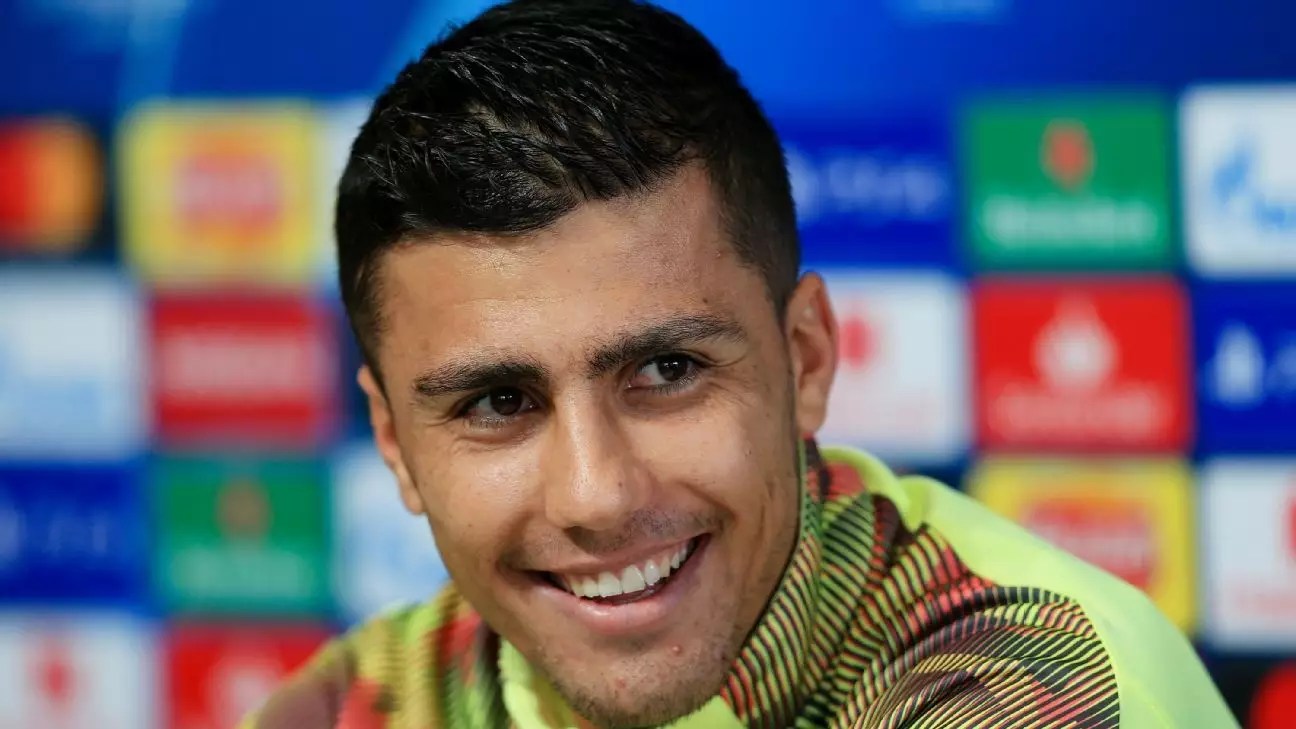As the global football community witnesses an increasing frequency of matches, the burden on players reaches unprecedented levels. Recently, the Professional Footballers Association (PFA) has raised significant concerns over fixture congestion, taking a notable stance against FIFA’s scheduling practices. The intense competition and rising match frequency not only pose health risks to players but also threaten the overall integrity of the sport. This situation has reached a tipping point whereby many players, including Manchester City midfielder Rodri, are contemplating extreme measures such as striking to demand changes in player workload management.
Rodri, who faced the daunting prospect of completing up to 63 matches last season, warns that elite footballers are nearing a breaking point. The already challenging calendar is set to evolve further, with the expansion of the Champions League and the introduction of a revamped Club World Cup, compounding the stress on players. PFA president Maheta Molango echoed these concerns, asserting that the ongoing pressures of fixture congestion are not only detrimental to player wellbeing but also to the broader ecosystem of football. “Players want to be listened to,” she remarked, emphasizing the urgent need for a constructive dialogue between stakeholders to address these escalating issues.
The relentless pace of modern football has left many players particularly vulnerable to injuries. This is not a mere concern for individual footballers but signals a broader crisis that demands immediate action from both football authorities and clubs alike. It invites the question: how can football continue to thrive if those at its heart are consistently pushed to their limits?
Football legends and contemporary coaches have begun to voice their frustration over the grueling schedule, which has become a point of contention. Real Madrid coach Carlo Ancelotti has been articulate about the necessity for change: “If those who rule football don’t realize the impact of too many games on player health, we face serious challenges.” His comment underscores a growing consensus that the current fixture model is unsustainable in the long term. Moreover, LaLiga president Javier Tebas expressed similar sentiments during the 2024 World Football Summit, advocating for immediate reforms before it’s too late.
Coaches and players alike have begun to recognize the impact of fatigue on performance levels during crucial tournaments, as evidenced during the recent Euros. The physical toll of an overloaded calendar not only detracts from the quality of individual performances but can also diminish the overall spectator experience across our beloved sport.
The anxiety around player wellbeing is compounded by the lack of responsiveness from governing bodies. While the conversation surrounding player welfare has gained momentum, there remains a palpable tension between leaders within the football community. David Aganzo, president of the Spanish Players’ Union (AFE), has been vocal about the possibility of a strike if dialogue with FIFA and UEFA continues to falter. His comments signal an alarming shift where the future of football could hinge on the solidarity of its players should appropriate measures not be taken promptly.
Aganzo’s insistence on the seriousness of the situation further emphasizes a growing need for all stakeholders, from players to club executives, to unite against practices that prioritize profits over the well-being of those who dedicate their lives to the sport. Aganzo refers to the calendar changes made by UEFA as “surprising,” pointing to an overall lack of accountability in the decision-making process where player wellbeing is decidedly overlooked.
The football industry must engage in a critical reevaluation of its structure. As players contemplate their wellbeing and future within the sport, the question of sustainability looms larger than ever. Sporting bodies have a responsibility not only to ensure the health of individual players but the vibrancy of the sport as a whole. Redefining match schedules and competition formats is not merely a matter of convenience; it is essential for the longevity and prosperity of the game.
Solutions may require revisiting the tournament structures, introducing limited schedules, and advocating for player rotation and recovery time, emphasizing quality over quantity. Football governing bodies must prioritize dialogue with players and unions to develop strategies that support both athletes’ health and the integrity of competitions.
The clock is ticking, and if action isn’t taken swiftly, the repercussions could ripple across the very foundation of football, jeopardizing not only player welfare but the essence of what makes football the beloved sport it is today. It is fundamentally time for change, and it can no longer be ignored.


Leave a Reply